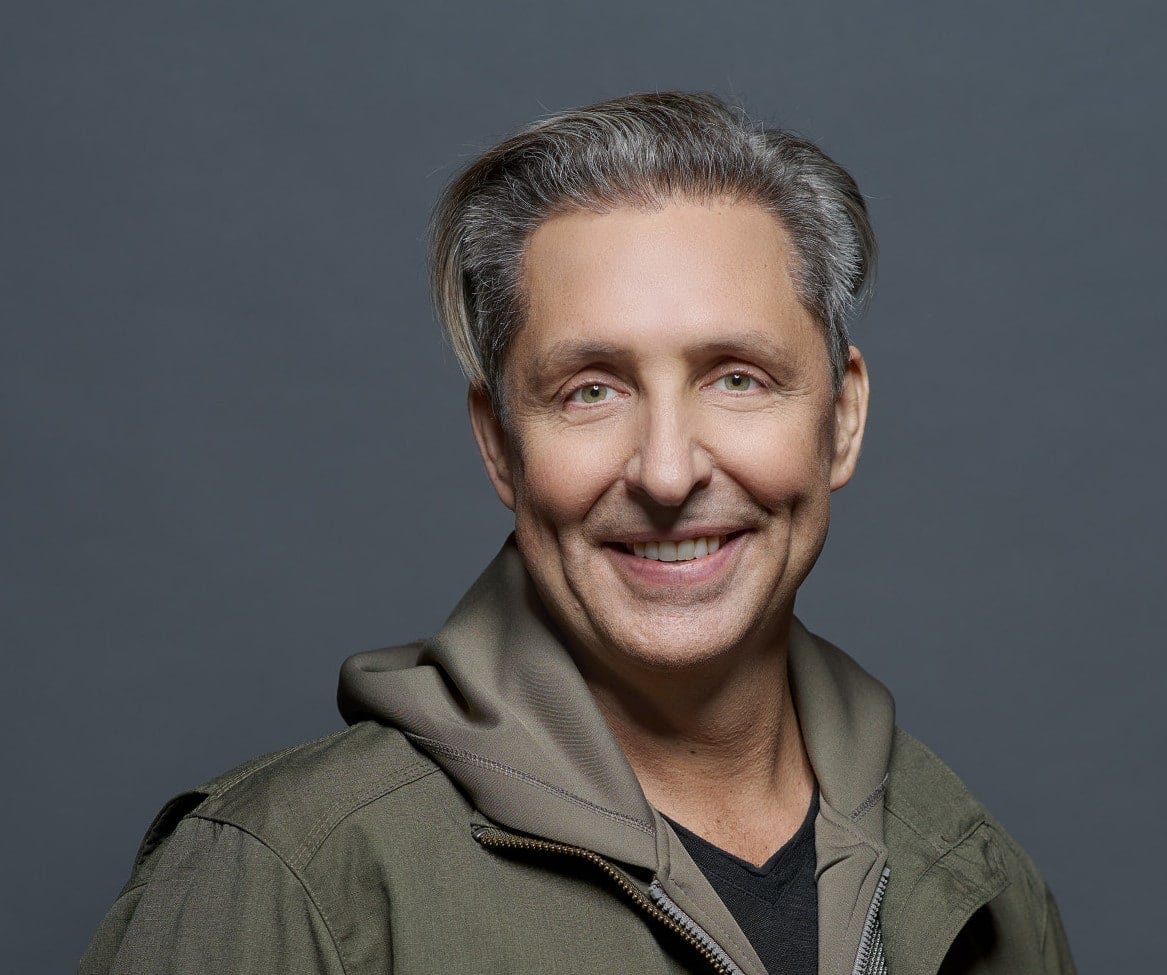Only a year ago people were taking the term “biohacking” incredibly seriously.
The hazy promise of biohacking in the online alternative health space was that of favorable alteration or enhancement; you could take some supplement, make some glib adjustment in your habits or lifestyle, or meditate for one minute to make some meaningful change in the course of your life, health or fitness.
To the biohacker, humans are a set of switches you can turn on or off with some simple intervention.
Of course, those providing this information, the biohacker gurus know all the switches and how to flick them on and off.
When the term was at its peak, everyone wanted in on it and started using it. It was kinda cringe watching content creators try to fit themselves to this new paradigm so as not to be left out in the cold.
And sure, it’s an attractive slant to a lot of people.
But for everyone else in the alternative health and fitness space it was reselling what they had already been doing for ages under slightly different language. There was no new “biohacking”.
I suspect the application of the term was driven by the “life hacking” online spam—endless clickbait videos and ads purporting to solve some stupid trivial problem you didn’t know you had.
What got lost in the enthusiasm was that biohacking was a transient marketing term popularised, amplified, though not created by the marketer and professional grifter Dave Asprey to sell a bunch of useless crap to you fucking morons: Bulletproof coffee (coffee with fat in it) and The Bulletproof diet.
It seems now Asprey, who had been a long term tech industry figure, borrowed the language of biohacking from a more academic and hardcore transhumanist current.
It’s muddy, but I get the impression of academic enclaves and ivory towers looking to normalise their own comfort and vices. Within this lies a political dynamic of accelerating consumer individualism, so one is completely dependent on external stuff that only massive industrialised tech can create to be a being. How many people today can’t cope without their mobile phone ? It’s like an another organ to them.
Likewise, choice is elevated over innateness. Under this theory, a complete person can only be one who’s chosen to flick multiple switches on or off, or who’s chosen to attach some product to themselves or who’s chosen some perverse modification.
The unmodified body and mind is not a complete person to the academic biohacker theorist. At the most extreme end they worry that the world needs a new layer of contorted freaks to protect them from scrutiny. As it happens the liberal consumerism that already exists offers the best plan.
It’s difficult to fully unpick the timeline. We’re really talking about a term rather than some new thing, but biohacking seems to appear around 2008 starting in America, then experiencing an ongoing rise in its usage 2012. By that point there are TED talks about it.
Asprey saw the vast marketing potential early on and sought to get ahead of rivals. Apparently he was selling coffee beans from 2011, by 2013 he started the Bulletproof brand. The 2014 Bulletproof diet is resold keto/carnivore as far as I can tell.
So you can see all this movement around the 2012 point.
In Asprey’s hands biohacking was no longer an academic theory of transhumanism, but an appeal to the base instincts of the masses, a sales call to average people who want simple short term answers to complex long term issues with zero sacrifice on their part.
Dave Asprey is an American entrepreneur and author who founded Bulletproof 360 in 2013. Asprey has written five books on biohacking. As of 2019, Asprey had spent at least $1 million "hacking his own biology", including having parts of his bone marrow removed and later re-injecting his own stem cells, taking 100 supplements daily, following a strict diet, bathing in infrared light, using a hyperbaric oxygen chamber, and wearing Irlen lenses to correct Irlen syndrome.
Sound familiar ? Today you have new internet marketers in the same alternative health space repeating the same thing again like this strange Bryan Johnson guy. They rely on the fact people have excessively short memories and new naive customers appear all the time.
On October 13, 2021, Johnson announced an anti-aging attempt that he calls "Project Blueprint."[11][12] Johnson claims to have improved certain biomarkers via dietary practices including caloric restriction and intermittent fasting, large numbers of supplements and medications, a strict sleep schedule, and frequent diagnostic testing among other methods.[26] He also underwent a series of six monthly 1-liter plasma transfusions with his son as the donor for one of the transfusions
And of course you morons can be relied on to lap this shit up again.
You probably didn’t notice Asprey and Johnson both came with huge marketing reach. They pay to promote their products. (In my view this 2021 Forbes article is a straight infomercial arranged with Asprey). It’s not organic. You probably didn’t notice how they were successful businessmen before they got involved in this. God sent them just for you, right ?
You want hope. You want to believe these people really are “hacking” their lives, living longer and becoming healthier whether it’s by doing this one cool trick or several of them. You want to believe these brave adventurers are defying nature and God just for you.
I never understood how Asprey sold anything myself.
The one video I ever had the misfortune to view of Asprey painted a picture of a very strange guy to me. Limp wristed, lispy, drugged, almost slurred and swaying in the breeze, he always seemed a very bad advert for his own products and a health lifestyle. It was like he couldn’t even be bothered to act the part.
Biohacking came to inevitably overlap with anti-aging and sales of anti-aging supplements. These people claimed they were reversing their biological age by taking a bunch of stuff. It’s just coincidence they were also a reseller for donotage.com.
After Asprey had extracted what he wanted from the term, biohacking then seemed to become associated with the use of nootropics —drugs to assist cognitive performance, presented or sold on biohacking-themed websites.
It then started to become a justification for anything. You could call anything biohacking.
Anabolic steroids and other PEDs were also starting to caught under the umbrella. “I’m not using, I’m biohacking”.
The term then spread into outright advocacy for recreational drug use. “This line isn’t use, I’m optimizing my dopamine”.
It became an umbrella term for a more and more degenerate and demented crowd obviously on a very bad path with no way of course correction.
But at the same time, with original stage set, with an audience and market still highly receptive to these ideas, the whole thing seemed to get vacuumed up and re-exploited again by Andrew Huberman.
So now biohacking is backed by science™. Huberman will sift the “fake biohacking” from the “real biohacking” just for you. Ignore the ads, the supplement sales, sponsorships and upsells.
One personality or guru replaces the next. One marketing term may replace the other.
It's not to say supplements can't exert an effect, and be useful they can. But there are limits to supplements. They are by their nature, supplemental.
Obviously drugs do real things, but we all want side effect free magic stuff, that’s been suppressed by Big Pharma that just works, right ?
It’s not that lifestyle changes can’t be made, but real change is very hard for most people with constant set backs and challenges.
When it comes to diets for weight loss, sure they exist, they existed long before Dave Asprey, because there isn’t a magic diet, but different dietary strategies, but they aren’t an overnight thing and you have find what is sustainable for you.
There are all kinds of adjustments that can be made, but what works for one person might not work for you, no matter what studies exist. And this is just another area where biohacking breaks down. You can’t provide online medicine for an individual in YouTube videos.
There are no “one cool tricks” most of the time. And it’s extremely improbable some tech entrepreneur has discovered the universal secret to health and longevity that they kindly want to share with you for a small fee in their product.
You’d be amazed that a lot of people don’t want to hear this. You don’t want to hear this right ?
And when people comment on YouTube to some video claiming it changed their life and cured their back pain within 1 day of the video being published you should smell a rat.
In my view the biohacking ethos has created an epidemic of placebo and sentimental agreement with some guru which people are treating as a positive outcome for their problem. You can just watch a video and be cured. Rewire your brain man. Guaranteed.
Biohacking, if it were its own real thing at all (it isn’t), is trying to tackle the problem the wrong way round. It’s packaging ideas of change, empowerment and control into a consumer edible. It’s framing the issue in reverse to what it ought to be.
Meanwhile the big names promoting biohacking and its offspring are quite comfortable thank you very much. They are not struggling in the way you are struggling.
There are no shortcuts in fitness or health. Biohacking doesn’t offer self-mastery but leads you straight back into being a pliable consumer again.
Whether it’s Asprey, Huberman or anyone else, whether we call it biohacking, or something else, the idea is to sell to you through the idea of little effort. And when that gets used up and finished, someone else will come along with a new term.
Don’t worry. You won’t remember though.
Edit:
I made a mistake about Huberman in the earlier version. He’s saying “ophthalmology” (one of his academic areas) not “optimology”, although it’s entirely plausible he could use a term like Optimology™ for marketing purposes.
I did not properly depict the pre-Asprey history to the term biohacking. But it seems obvious Asprey popularised the term.











Some simple strengthening is the real fountain of youth. It takes a little effort, yet most of it is free. Even if you are a beginner, you can likely do push ups from knees, planks from knees, body weight squats, etc. Great points in your article.
I’m the girl who discovered Biohacking in the underground scene and put it on the map in Silicon Valley. I can agree with your assessment that it has been watered down and diverted from its original ethos.